Brands Bullish Despite Headwinds at Paris Men’s Trade Shows
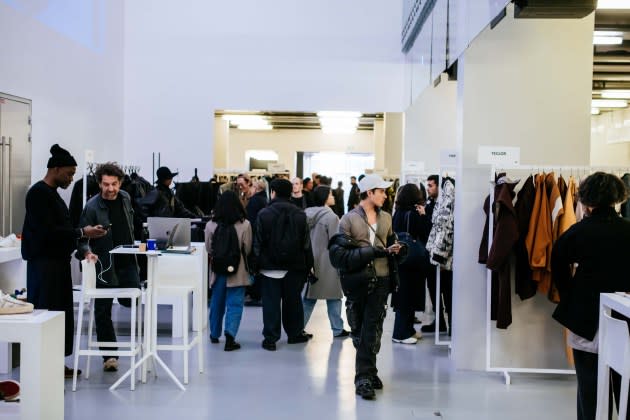
PARIS — With parts of the luxury space showing signs of a slowdown and many retailers under significant pressure, the context for smaller labels exhibiting at the Tranoï and Man trade shows here during Men’s Fashion Week was challenging at best.
“There is a lot of concern about geopolitics and production delays have been impacting brands,” said Tranoï general manager Boris Provost. “The global context is definitely worrying, but I truly believe that despite that, there is a place for designer labels,” he continued. “Season-on-season, our visitor numbers keep increasing, especially from Asia.”
More from WWD
Several brands showing at both Tranoï and Man said that holiday season business had been better than anticipated, and that as such, buyers were more bullish than anticipated.
“Everyone’s very upbeat, it’s surprising,” said Charles Arnett, business development consultant for hemp specialist Jungmaven, exhibiting at Man and looking to ramp up wholesale internationally. The brand was introducing its first upcycled pieces. “All of the stores are buying and interested in what’s new. Everyone seems remarkably hopeful about business, and this is a pretty unique show, the best of the best in terms of independent brands,” Arnett said.
John Webb of Great HWY Showroom, representing Handvaerk, Magnlens and newly added heritage Danish knitwear label S.N.S. Herning at Man, said footfall had been strong, especially among American buyers. “The holiday season was healthy, the doom and gloom are less pronounced than was perhaps anticipated,” Webb said. “Department stores are healthier than expected, and boutiques are up. People are embracing going back to boutiques and discovering things.”
At Tranoï, which opened on Jan. 18 for a three-day run at the Gaïté Lyrique closing Saturday, there was a shift in focus, with an expanded offer of French designers in a walk-through space at the entrance, the addition of a pre-fall selection and a bigger accessories offer representing around a fourth of the 40 brands present. “Tranoï has always been seen as an international show, and it’s true that we have helped promote designers from a number of different countries. It was time to showcase French designers. International buyers want to discover new French brands. Especially in Asia and the U.S., being made in France is a key selling point,” Provost said.
“Our products by necessity have a luxury price point, but for the export market, there is a definite sensibility to quality products,” said Clément Douillet of knitwear label Maison Douillet, which was among the young French labels showing.
“Manufacturing in France is really important to us,” said Naomi Gunther of Gunther, also at Tranoï. “When you have a premium product, it is financially viable,” she said of her collection, all of which is produced in and around Paris, aside from jersey pieces. “Customers tell us that for Made in France products, the price is justified,” she said. Having a workshop in Paris is also allowing the label to cater to its growing custom business, she added.
Her collection, like much of the offer at both shows, mirrored the shift toward modernized tailored silhouettes ongoing on the men’s market, and away from streetwear. There was also a noteworthy presence of categories like knitwear to accompany structured silhouettes, and casualwear was largely more pared back, with a focus on comfort and understated, high-end fabrications.
Alongside its core offer of around 80 brands at Pavillon Vendôme, Man, which ran from Jan. 19 to 22, also featured a separate bustling showroom across Place Vendôme for Japanese retailer and brand owner Nepenthes’ brands Needles, Engineered Garments and Woburn Walk, its latest collection developed out of London, all in Paris for the first time since the pandemic.
Brands to watch from Tranoï and Man
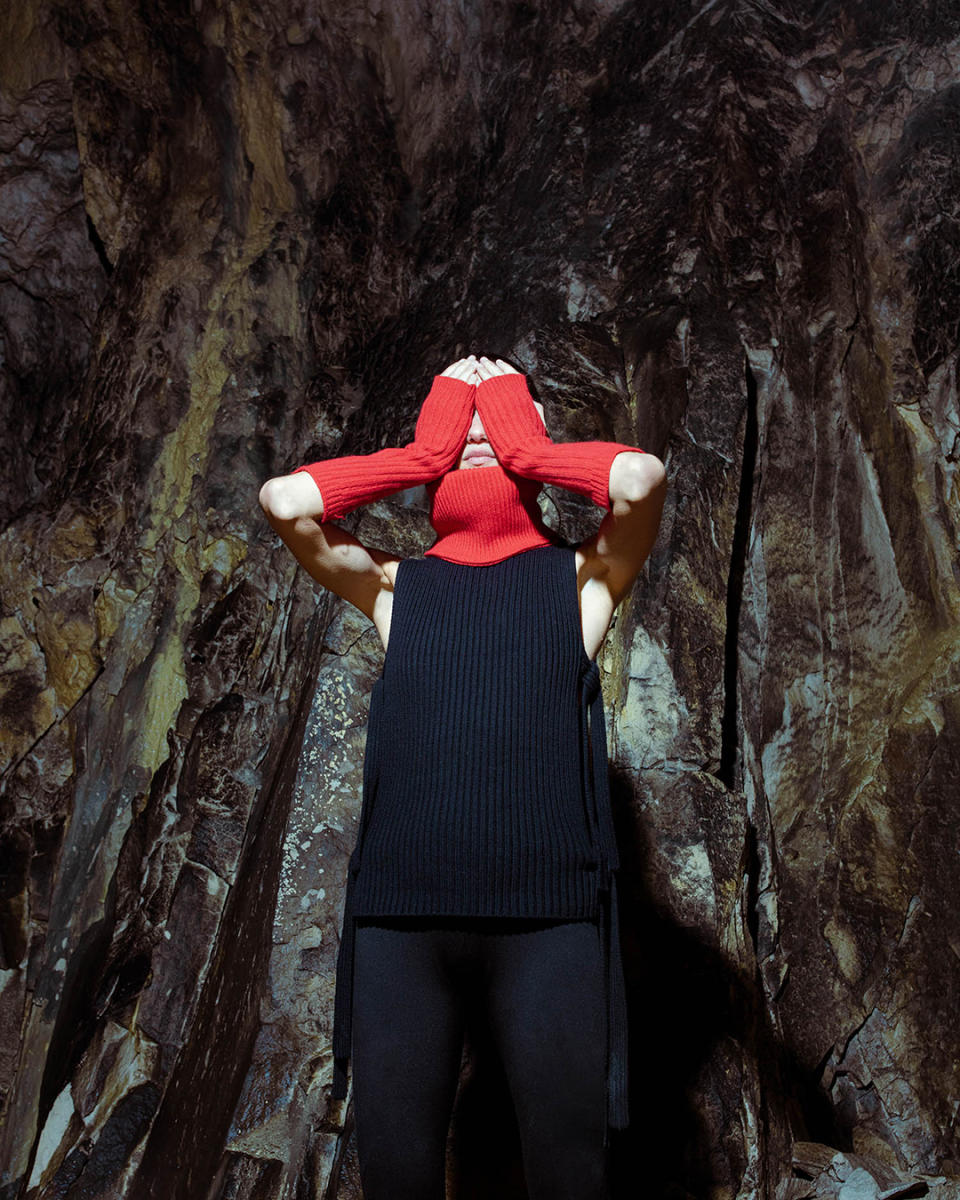
Maison Douillet
Category: Accessories and RTW
Showing at: Tranoï
What’s in a name? Quite a lot, it turns out. Douillet — meaning “cozy” in French — happens to be the surname of knitwear entrepreneur Clément, a former engineer who created his eco-conscious label in 2021. The brand focuses on traceability, French production and prioritizing recycled wool and cashmere. Expanding beyond accessories for the first time — simple beanie hats, gloves and scarves in high-end materials — he presented a selection of minimalist ready-to-wear pieces, including pants made from merino wool woven in Arles, boiled wool vests and organic cotton ribbed T-shirts. Stockists include concept store l’Exception in Paris.
Retail price range: 420 to 900 euros for ready-to-wear pieces, 50 to 140 euros for accessories.
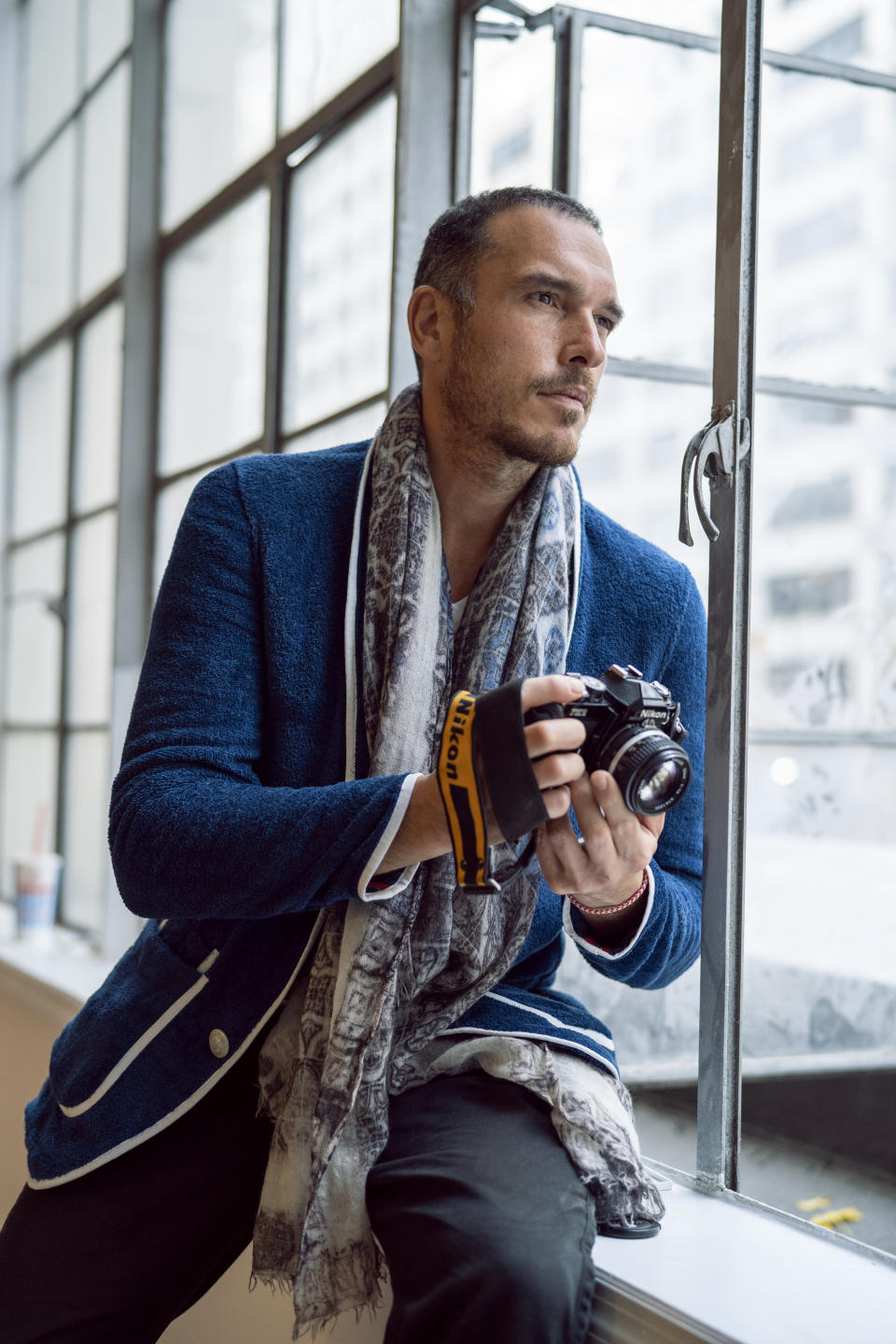
Baindoux
Category: RTW
Showing at: Tranoï
Saint-Tropez-based Baindoux intends to transcend resortwear with its multipurpose, unisex silhouettes crafted entirely from Egyptian cotton terry cloth. Founded in 2019, the label has until now focused on distribution in high-end vacation destinations, and is opening up to broader wholesale opportunities. Highlights in the collection include tailored jackets with contrast piping details and wide workwear shirt jackets. The label also offers a customization service for boutiques.
Average retail price: 600 euros
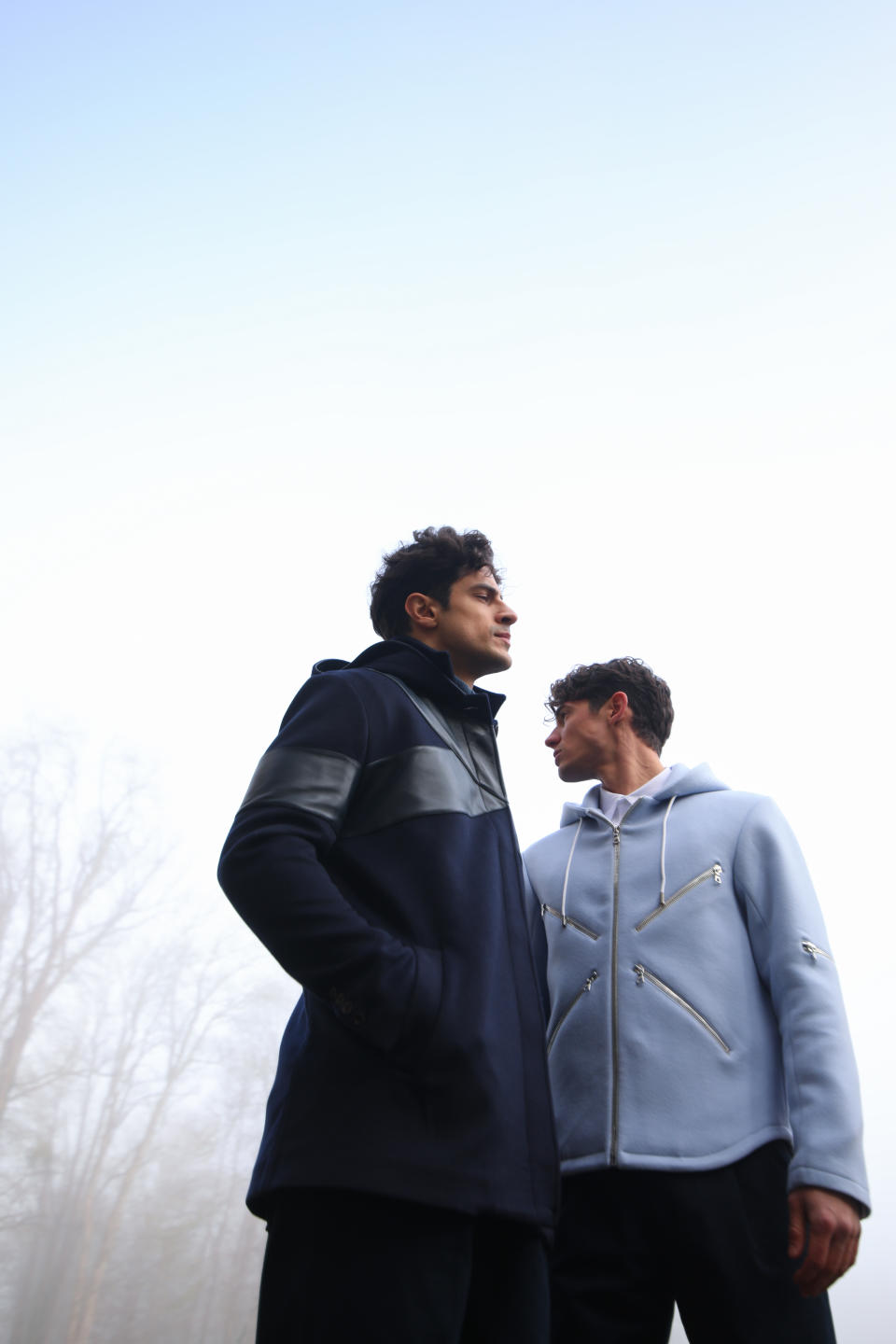
Baalder
Category: Men’s apparel
Showing at: Tranoï
Initiated into the arts by his grandmother, a painter, Paul Baldassari worked in the automotive industry for several years before setting out to launch his Baalder label in 2022, with a focus on high-end materials and classic silhouettes updated with sporty twists. His fall collection, “Soldiers of Love,” was inspired by ‘70s U.S. Air Force uniforms, with utilitarian details and quirky zipper features paired with minimalist silhouettes. Wool and leather pieces are manufactured in France, with tailoring done in Italy.
Retail price range: From 100 euros for a T-shirt to between 500 and 1,000 euros for coats and jackets.
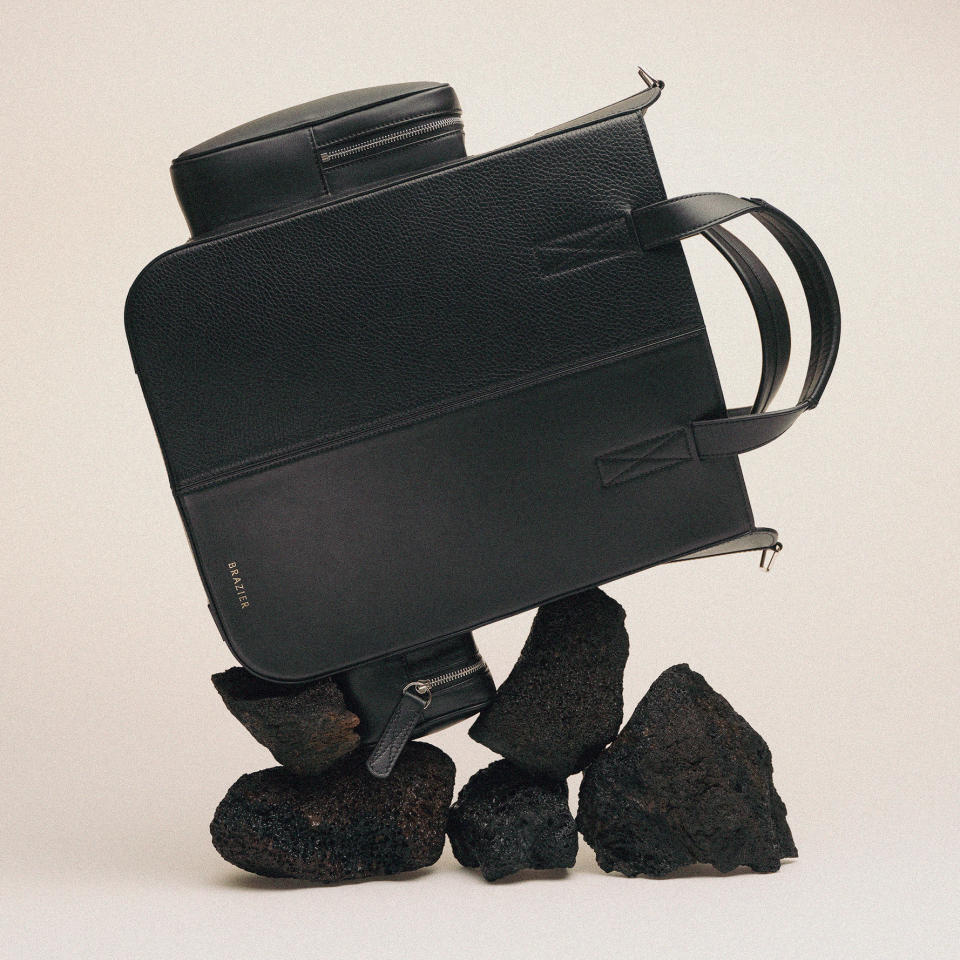
Brazier
Category: Leather goods
Showing at: Tranoï
Former banker Dimitri Nouveau is aiming to inject newness into the men’s market with his Swiss French accessories label Brazier, launched last year in partnership with 2021 Hyères finalist Manon Marcelot. The brand offers leather goods in tweaked classic styles with lightly curved and asymmetric shapes and padding, all manufactured in Spain. It counts Printemps among its stockists.
Core retail price range: 440 to 740 euros
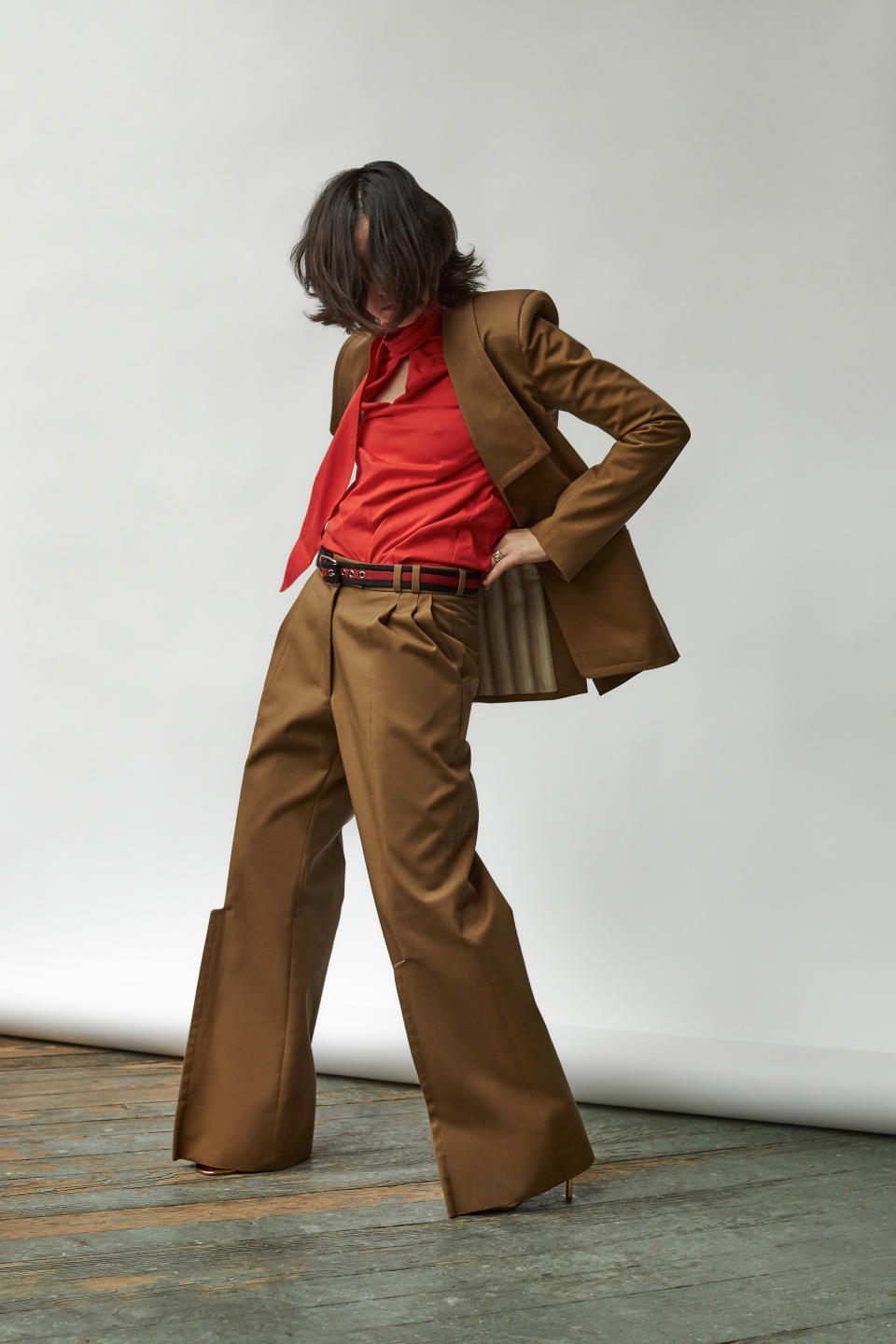
Myo
Category: Pre-fall RTW
Showing at: Tranoï
Self-taught designer Mehdi Ouhnia bought his first sewing machine second hand at the age of 11, and worked in fashion retail then design for labels including Mugler and Marithé + François Girbaud. His androgynous, seasonless collection — his first — was inspired by the 1920s and is made in France with high-end, organic and deadstock materials, with twists on classic silhouettes designed to suit all body shapes, including seam-free T-shirt dresses and quirky tailored pants with angular seam details.
Retail price range: 95 to 1,050 euros
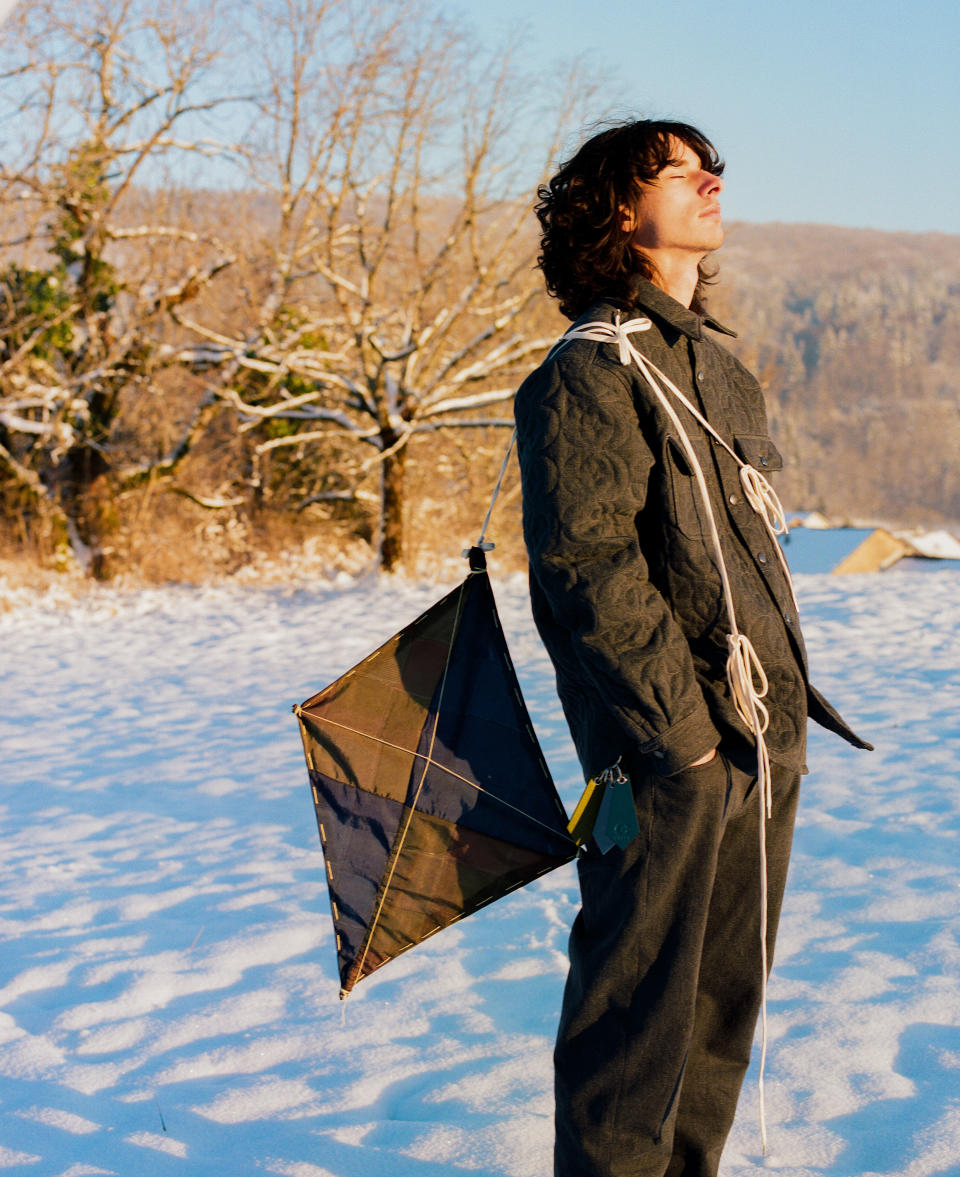
Crest Clothing
Category: Men’s apparel
Showing at: Man
Childhood friends John Dunand and Sami Cherrad, from the French Alps, are garnering a growing following with their “timeless cozy wear” concept based on youthful workwear silhouettes using luxury fabrics. With references including brands like A Bathing Ape, they take inspiration from the landscapes surrounding their home, which also form the backdrop for their visuals. Highlights in the fall collection include a reversible padded jacket featuring stitching in the form of an abstract logo and soft, fleece-like wool sweaters. Creative collaborations are key to the brand, and the duo has teamed with former Midlake singer Tim Smith in the past and with British band Current 93 on a capsule for fall 2024.
Retail price range: 100 to 650 euros
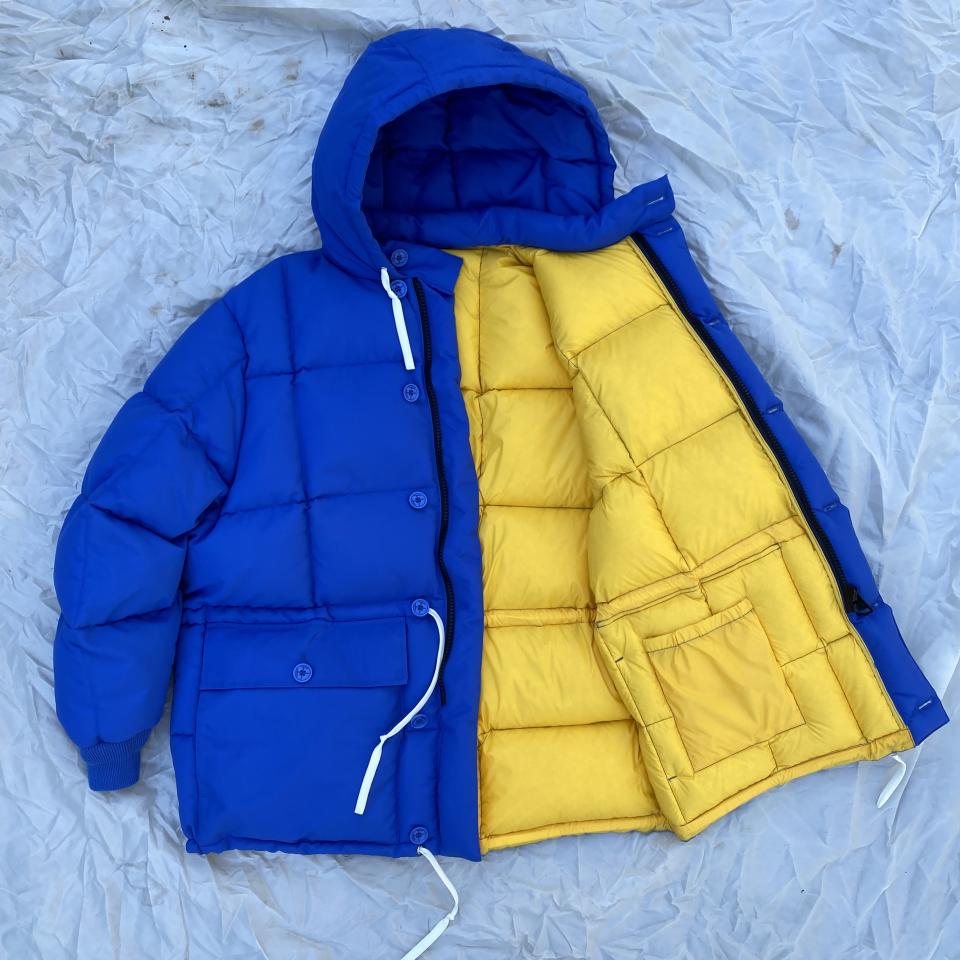
Big Rock Candy Mountaineering
Category: Accessories and outerwear
Showing at: Man
This fledgling outerwear label based out of New York is the brainchild of vintage enthusiasts Peter Middleton, founder of the Wythe label, and Samuel Hardeman, an independent brand and product director. They were inspired by colorful vintage pieces like parkas conceived for the U.S. mountaineering team in the ‘60s, creating pieces that honor the original styling but are updated with contemporary fabrics and details and at an accessible price point compared with vintage finds.
Retail price range: $198 to $598
Best of WWD


